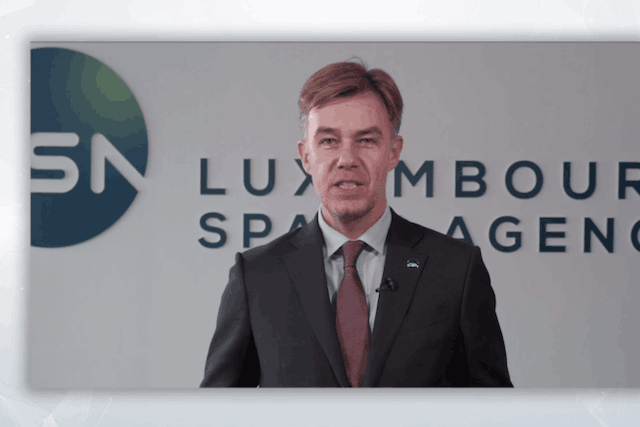The eight founding members include the grand duchy and the US, as well as Australia, Canada, Italy, Japan, the United Arab Emirates and the United Kingdom. The announcement was made during the 71st International Astronautical Congress (IAC), taking place 12-14 October.
“The Artemis Accords integrate very well with the efforts Luxembourg has been making, both nationally and internationally, to support the peaceful exploration and sustainable utilisation of space,” said economy minister Franz Fayot (LSAP) during the IAC event, “and more specifically space resources for the benefit of humankind”.
The Artemis Accords are part of the wider “Artemis” programme, dubbed the moon-to-Mars mission, which will see a global coalition involved in achieving a sustainable presence on the moon.
Fayot emphasised that through the grand duchy’s 2016 Spaceresources.lu launch as well as the 2017 space resources law, “Luxembourg’s strategy has always been to strengthen the space sector and promote the creation of a healthy space ecosystem”, with the law being “an enabler to contribute to further security and clarity so much needed by the different stakeholders”.
While the grand duchy has been active in discussions on space best practices in international fora, Fayot added that the Luxembourg Space Agency and Nasa will further explore “future and existing capacities” which could include areas such as “prospecting of resources, surface mobility, operations and energy”.
According to Nasa, it has been engaging with global partners through the Artemis Accords, which outline “principles for a safe, peaceful and prosperous future” and are grounded in the 1967 Outer Space Treaty—which, as Nasa administrator Jim Brindenstine quipped, “doesn’t look a day over 35”.
Per Brindenstine, the values outlined in the Artemis Accords include transparency, public release of scientific data, emergency assistance in times of distress, and adhering to peaceful principles. “The Artemis Accords are a beginning, not an ending,” he added.
Nasa’s acting associate administrator for international and interagency relations, Mike Gold--who was among the delegation in Luxembourg last month--said the accords “will help to avoid conflict in space and on Earth by strengthening mutual understanding and reducing misperceptions. Transparency, public registration, deconflicting operations--these are the principles that will preserve peace.”
Gold added: “The Artemis journey is to the Moon, but the destination of the Accords is a peaceful and prosperous future.”
Following the virtual live signing event, Brindenstine stated that, “While a good number of countries signed the accords today, there’s room for more.”
